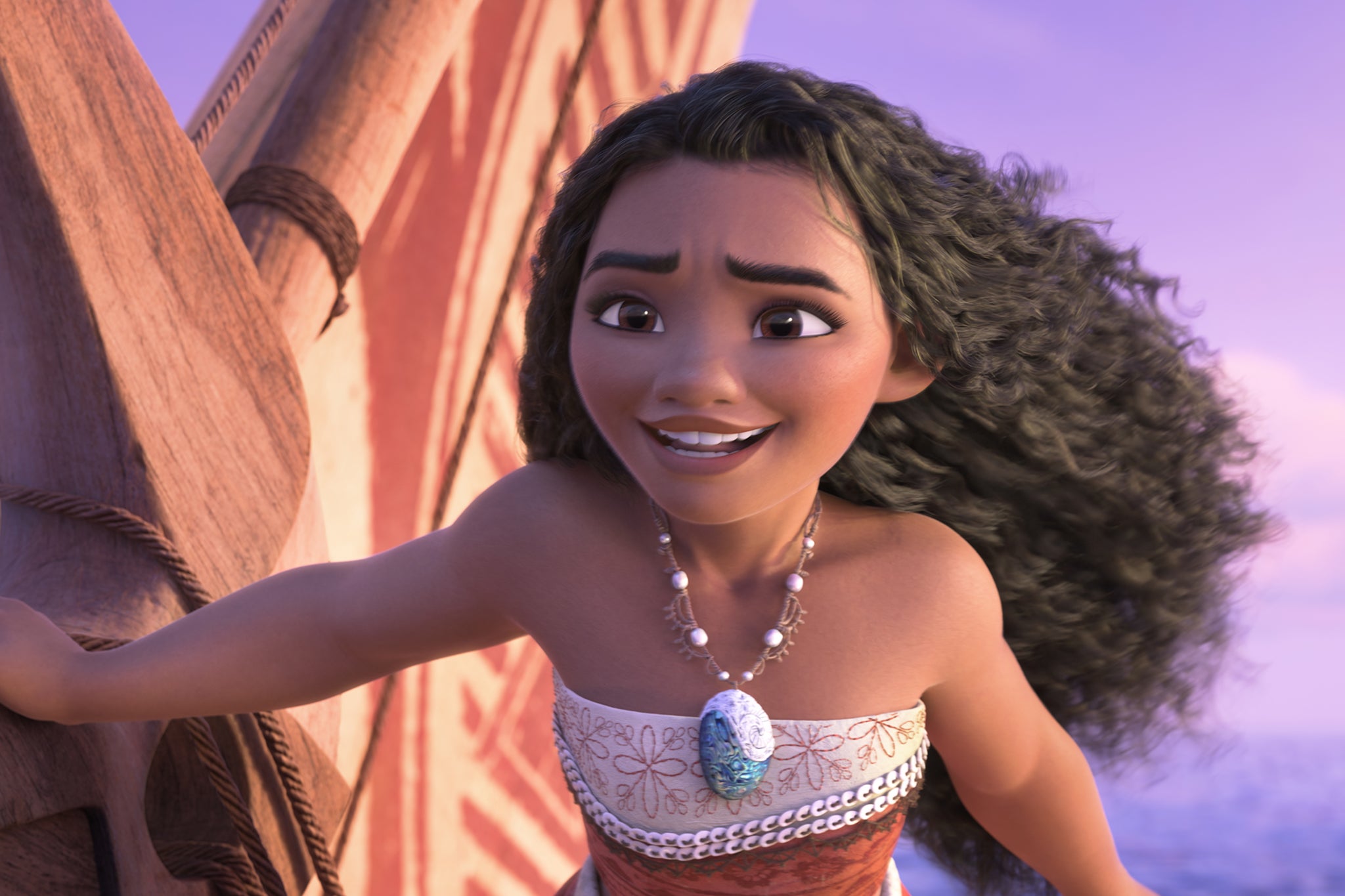The success of Moana 2 is nothing to be celebrated – there is a real crisis in animation
The Disney sequel has broken records after a phenomenally lucrative opening weekend. But this isn’t necessarily the boon for cinema that fans are making it out to be, writes Louis Chilton
Your support helps us to tell the story
From reproductive rights to climate change to Big Tech, The Independent is on the ground when the story is developing. Whether it's investigating the financials of Elon Musk's pro-Trump PAC or producing our latest documentary, 'The A Word', which shines a light on the American women fighting for reproductive rights, we know how important it is to parse out the facts from the messaging.
At such a critical moment in US history, we need reporters on the ground. Your donation allows us to keep sending journalists to speak to both sides of the story.
The Independent is trusted by Americans across the entire political spectrum. And unlike many other quality news outlets, we choose not to lock Americans out of our reporting and analysis with paywalls. We believe quality journalism should be available to everyone, paid for by those who can afford it.
Your support makes all the difference.To paraphrase a famous rapper: Mo’ money, Moana, mo’ problems. And Moana 2, a sequel to Disney’s 2016 musical animation, seems to be delivering on both counts.
Released in cinemas last week, the film – which reunites daring seafarer Moana (Auli‘i Cravalho) with puckish demigod Maui (Dwayne Johnson) – has been a fast hit; its opening-weekend box office of $386m (£303m) has set new records for a Disney animation. After the doldrums of Covid, it’s been easy to get behind success stories such as Moana 2, to brush aside any minor gripes and cherish the fact that people are keeping the cinematic experience alive. But the issues are real, and deep-rooted, and tug at something bigger: American animation is in the throes of an identity crisis.
In strictly financial terms, of course, things are gravy: Moana 2 comes at the tail end of a year in which the box office has been dominated by American animation: Pixar sequel Inside Out 2 made a whopping $1.69bn, Despicable Me 4 made $969m, and Kung Fu Panda 4 a not-to-be-scoffed-at $548m. Last year, The Super Mario Bros Movie was another goliath hit, making $1.36bn and finishing second only to Barbie at the global box office. What makes these films such redoubtable hits? It’s not the reviews – Inside Out 2 was warmly received but not exceptionally so, while the rest of the bunch all hovered around the OK-at-best mark. None of these films are originals, many of them the sequel to a sequel to a sequel. Just as much as live-action cinema, animation is mired in corporate interference.
It’s perhaps no wonder that Moana 2 has also prompted tepid reviews, given the film’s unconventional production. Originally commissioned as a streaming series, the project was transmogrified into a theatrical film partway through development. Ostensibly, this was because Disney executives were moved by its quality; in practice, they were likely swayed by the slowly manifesting possibility of a big theatrical payday. The original Moana was relatively little seen upon its initial release, but slowly found a massive audience on streaming – young children, watching and obsessively rewatching it. Ratings firm Nielsen reports that Moana was, staggeringly, the most streamed film across all platforms last year.
In deciding to release Moana 2 in cinemas, however, Disney butted up against the limits of its own ambition. As a series, it never attempted to match the scale or pedigree of the original film. The original Moana was directed by John Musker and Ron Clements, the animation mavens behind Disney Renaissance gems such as The Little Mermaid and Aladdin. The sequel, on the other hand, was directed by a triumvirate of first-timers: David Derrick Jr, Jason Hand, and Dana Ledoux Miller.
The change in music is even more noticeable: Moana’s best songs were written by Hamilton’s Lin-Manuel Miranda, who did not sign on for the sequel. (Mark Mancina and Opetaia Foa‘i, who co-wrote the music for the original, do return, and are joined by Abigail Barlow and Emily Bear as additional songwriters.) In her review, The Independent’s critic Clarisse Loughrey suggested that the songs “would have benefited from the breathing room that only episodic television could provide”. The film, she adds, shows the stitches of its contraction: some side characters, for instance, are introduced and disposed of with frustratingly little screen time.

It’s maybe wrong to grumble when a film such as this succeeds so robustly. Looked at in isolation, Moana 2 is a bright, well-animated film with a positive message and a strong, likeable protagonist. But Moana 2 doesn’t exist in isolation. Between this and the terrible-looking Lion King prequel Mufasa, out in a matter of weeks, it’s more or less an industry-wide cry for help.
What’s more, frustrations with the contemporary model of animated blockbusters are compounded by the knowledge of just how sweet we used to have it. There was a time, even in recent memory, when studios were releasing new, completely original animations on a regular basis – think of the “golden era” Pixar run, from 1995’s Toy Story through to around the year 2010. So we shouldn’t see Moana 2’s box office as a victory – it’s made a fortune from the bare minimum. Maybe children can’t reasonably be expected to twig this. But for everyone else, it’s time to demand more.
‘Moana 2’ is in cinemas now

Join our commenting forum
Join thought-provoking conversations, follow other Independent readers and see their replies
Comments